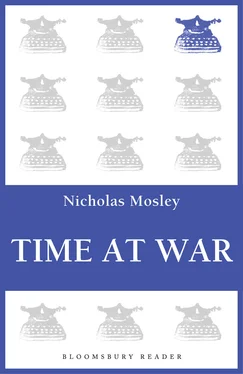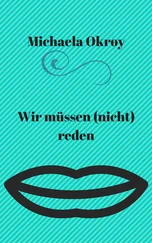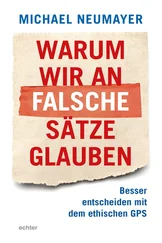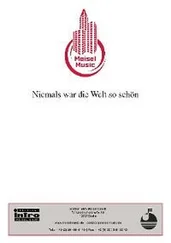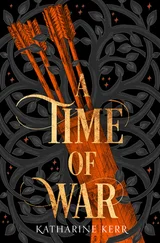Kennen Sie what victory means? It means I am at the moment the tempestuous possessor of three cars — a Mercedes which goes at such a horrific speed that I am terrified to take it beyond second gear; an Adler saloon which cruises at 60 without the slightest indication that it is moving; an Opel which streaks hither and thither to the desperate confusion of stray pedestrians. It means that we dine on champagne each night except when we feel leery enough to start on the brandy with the soup. It means — oh well, so much really beyond cars and wine that I suppose they are of infinitesimal significance.
The army was tolerant about such loot. Someone had to clear up the personal stuff by the road, and for a time we were allowed to keep the cars because transport was needed to get us to Austria — or to Yugoslavia, or wherever we were now heading. Rumours abounded; there were few official briefings. In Austria we might be needed to get to somewhere or other ahead of the Russians who were advancing apace from the east; for although the Russians had been our much-lauded Allies during the war, we didn’t actually trust them, did we? (What — they might carry on marching west with their vast armies till they reached the Channel ports?) About Yugoslavia the briefings were as confusing as the rumours. We had been backing Marshal Tito who had been fighting a guerrilla war for years against the occupying Germans; but Tito was a communist, and he would surely now be aligning himself with the Russians. Also he was a Serbian, and might well take the opportunity to annihilate his traditional enemies the Croatians, who had tended to side with the Germans. But the Croatians were trying to surrender to us, and so should we not prevent a massacre? But this might antagonise Tito and provoke Russia. And so on. One could begin to see how the simplicities of war might be easier to deal with than the complexities of peace.
We drove north in our motley convoy bypassing Venice and going through Udine into Austria at Villach. We hardly cared where we would end up; this was the sort of uncertainty to which we had become accustomed. The rumours gathered like dark clouds: Tito might be wanting to grab a chunk of Austria, but if we moved too many troops into Austria he might grab Trieste in Italy. There was a pro-German force somewhere in the hills which consisted of Russian anti-Bolshevik Cossacks who had been fighting for the Germans; they too said they would only surrender to the British because in the hands of anyone else they would be likely to be slaughtered. In the meantime the Irish Brigade had taken over a warehouse containing tens of thousands of bottles of the Austrian liqueur Schnapps; so that the political situation assumed an air of less importance. It was even said that someone somewhere had captured a Mint which was churning out a stream of paper money. Then a new and mythical-sounding threat was said to be on the horizon — the Bulgarians! But no one seemed quite to know on which side they had been or would be fighting.
The London Irish were sent off (though my memories of this are hazy) to make some sort of contact with the Russians. We made a dash to Wolfsberg in the eastern Austrian Alps; the Russians had got as far as Graz, some thirty miles further. We sent out scouting parties; what on earth were we supposed to do if we came across Russians? Offer them some Schnapps? I have a picture in my mind of myself and my platoon arriving in some small-town square and seeing across the road some men in strange uniforms whom we took to be Russians — unsmiling and bulging out of jackets that seemed too small for them. We eyed each other warily. Then, probably because none of us understood a word of each other’s language, we wandered into the middle of the square and nodded and made friends. In The History of the Irish Brigade it is recorded that there was a conference held at Wolfsberg in the Officers’ Mess of the London Irish Rifles, at which territorial boundaries were agreed between the British and Russian forces. This was facilitated, it is suggested, not so much by Schnapps, as by alarm about the intentions of the Bulgarians.
After a week in Wolfsberg during which some of all this must have been sorted out — or must have come to be considered not really necessary to be sorted out — we withdrew to Villach, and then to villages on the northern coast of the Ossiachersee, one of the most beautiful lakes in Carinthia, the Austrian province bordering on the frontier with Italy. And there the London Irish stayed for the rest of my time with them in Austria.
What had struck us all on our entry into Austria was not only the beauty of the place and people but the orderliness, peacefulness, the lack of signs of war. The people were neither overtly friendly nor hostile; they were dignified and courteous, and paid attention to what we required. This was especially striking to the communist Desmond Fay, who on entering a recently Nazi-dominated country had expected … what? A people arrogant and savagely embittered? Desmond could laugh and shake his head about what he in fact found; but it was something that made us all wonder, even if we could not work out exactly what. We were at first billeted in an orphanage for children whose parents had been killed in the war: there were Germans and Poles as well as Austrians. The children all seemed to have fair hair and the most beautiful manners as well as looks. The women in charge of them herded them into outlying buildings to make room for us; we found ourselves treating the women as if they were our hostesses and we were their guests. When we first arrived there was an army rule that there should be no fraternisation with local people; later this was relaxed because it was unworkable as well as senseless. There were few men except the old left in the villages; the girls and our young soldiers began to flirt not indecorously.
We eventually had to hand over the cars we had taken as loot. Some officers came to arrangements with local farmers to keep and hide their cars until such a time as they could come and pick them up when they were out of the army.
There was still much to do with the huge number of German soldiers and officials who were keen to give themselves up — for the reason that they wanted to be fed, as well as not to fall into the hands of the Russians. From the crowds of these there had to be weeded out and interrogated those who had been Nazis in positions of responsibility who might now be prosecuted as war criminals. In the early stages of this process I was sometimes called on to act as an interpreter with my primitive German. This attempt was apt to dissolve into farce. But there were other situations that became tragically serious.
The Russian Cossack Corps that had been fighting for the Germans against what they saw as an alien Bolshevik Russia had succeeded in surrendering to the British; many had their families with them; they knew that if they were sent or taken back to Russia they would all almost certainly be shot. The Russians demanded that they should be handed over; the British prevaricated. But there had been an agreement between Churchill, Stalin and Roosevelt at the Yalta Conference earlier in the year that all such prisoners should be returned to the country they originally came from. The Cossacks could claim that they had been turned out of their country by the Bolsheviks and thus they had no country, but this carried no weight with the Russians. Orders came down from London that the Cossacks and their families, who had been camping in fields, were to be put forcibly into railway trucks and handed to the Russians. By good fortune the Irish Brigade were not required to do this. But we heard of it; and worried. What would we have done? There was a story that heartened us of a commanding officer of the 6th Armoured Division who went to the assembled Cossacks in their field and told them of the orders he had received, and that as a dutiful soldier he would have to obey them; but he would not do so until morning, and in the meantime he would remove his soldiers who were guarding the field because they were tired. And so in the morning the Cossacks and their families had gone — to mingle presumably with the hordes of displaced and often unidentifiable persons throughout Europe.
Читать дальше
